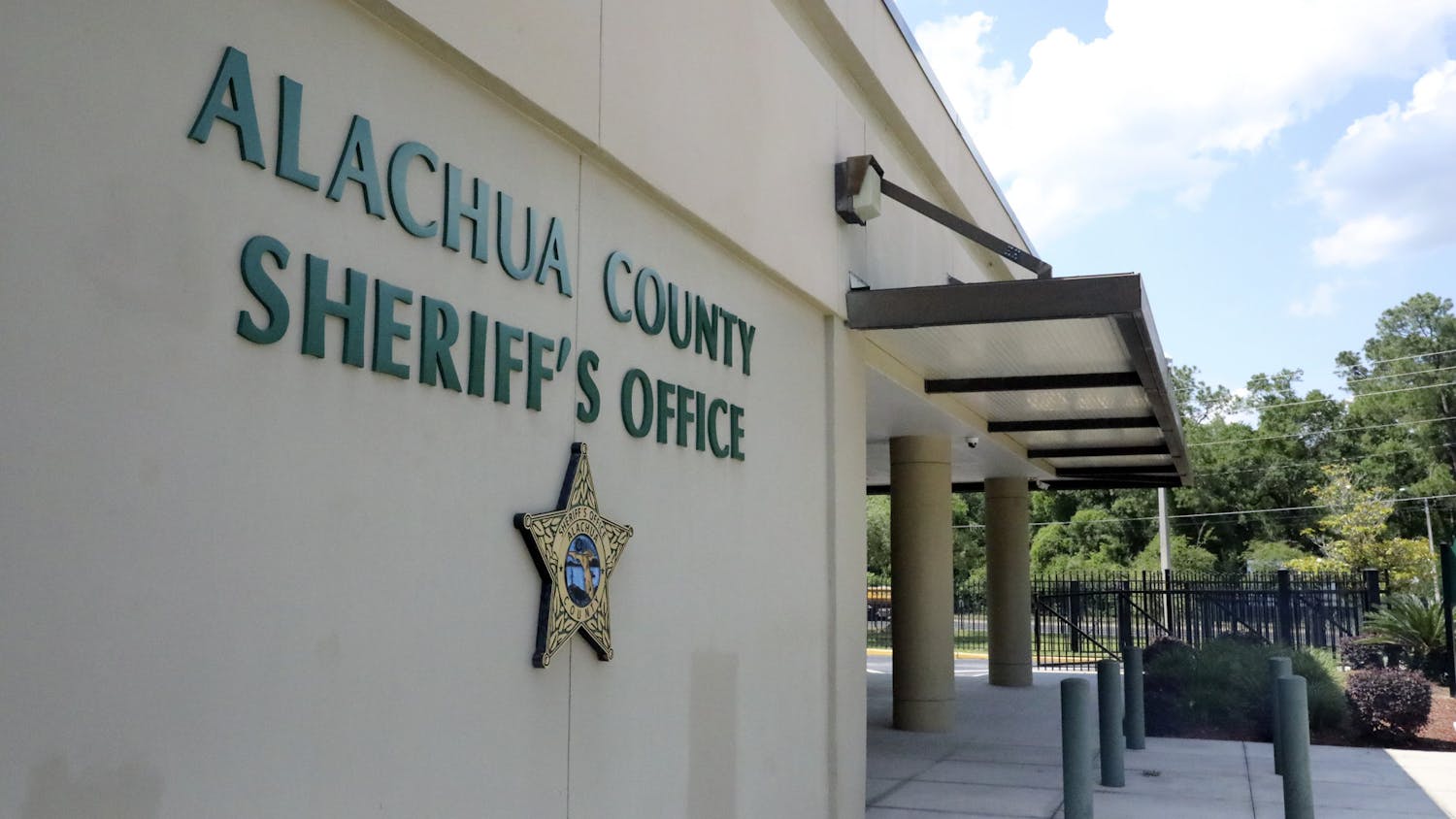Nearly half of all law enforcement agencies in the United States require officers to wear a body camera. Soon, the Alachua County Sheriff's Office will join them.
Last October, the Alachua County Board of County Commissioners approved $500,000 for body cameras, ACSO spokesperson Art Forgey said. Deputies who do not wear body cameras when they’re supposed to can face penalties. There is currently not a set date for the body camera requirement.
The change comes amid police brutality issues surrounding race nationwide.
On April 12, an ACSO deputy fatally shot a man for allegedly attempting to stab his girlfriend. However, there was no body camera footage to document the incident, which is currently being investigated by the Florida Department of Law Enforcement.
Alachua County Commissioners spokesperson Mark Sexton said ACSO requested funds for the body cameras last year. He said county commissioners don’t have control over what the sheriff’s office does and can only approve or disapprove of requested funds.
“I think they’re aware of what’s going on nationwide and the importance of body cams,” Sexton said.
The ACSO budget for the 2021 fiscal year is $94 million, Sexton said.
Chanae Jackson, a Black Gainesville activist, has been advocating for body cameras since 2018 when her son Keyon Young, who is also Black, was pulled over for speeding in a school zone.
ACSO deputies used force to pull Young out of the car, one officer drawing a taser. The police report confirms a taser was drawn but not used in the encounter and officers gave several warnings for Young to exit the vehicle.
The ACSO wrote in a Facebook post about the incident that it is policy to ask drivers to step out of their cars and walk to the patrol vehicles to ensure safety.
Officers were not wearing body cameras, and the only footage of the incident was from a dashboard camera on one of the police cars.
Jackson said it’s important for police to release full footage of altercations to ensure a “more fair” criminal justice system.
“Whenever there is a disparity among racial lines, one of two things is true,” she said. “Either there’s bias in the system or there’s something that’s wrong with all Black people, and we know number two is not true.”
Jackson said body cameras in Alachua County will provide clarity for both sides.
“There’s a greater level of accountability because officers would be more attune to making sure that their reports are complete and accurate,” Jackson said. “When there are people who may be aggressive toward law enforcement, it could protect an officer by showing they did fear for their lives, and this was the only option.”
Gainesville District 4 City Commissioner Adrian Hayes-Santos said he is when body cameras are used, altercations between officers and community residents decrease.
“It helps build trust both with the public and also with the officers,” Hayes-Santos said.
Gainesville resident Frances McKenna, 39, also agrees with the decision to require body cameras on ACSO deputies but doesn’t think they would decrease police altercations.
“My hope would be that the officers would start thinking ‘I’m on camera, I should be a good person.’ So far, it seems to not be the case,” McKenna said.
Studies show mixed results about whether body cameras improve police behavior. In Milwaukee, a 2018 study found body cameras had no effect on the likelihood officers would use force. The New York Times reported a similar study on NYPD found body cameras led to about a 40% increase in traffic stops.
However, an NPR study found complaints against police dropped by 17% and use of force by police during fatal and non-fatal encounters fell by nearly 10% in police departments across the United States.
Still, McKenna said ACSO should’ve started using body cameras a long time ago.
“I figure we hand deadly weapons to these people and send them out among the public, any oversight is probably a good idea,” she said.
Quil Cauchon, an organizer for the Gainesville chapter of the Dream Defenders, disagreed with the funding given to the sheriff’s office for body cameras.
“We can give that money to the community who knows far better how to solve the problems than the police are being asked to solve,” she said.
Contact Jake Reyes at jreyes@alligator.org. Follow him on Twitter at @frlJakeReyes.






